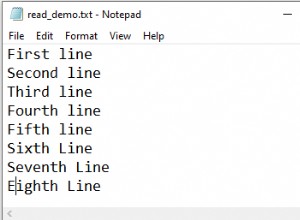Veuillez voir le code commenté ci-dessous pour combiner récursivement les noms. Code inspiré des Spacy Docs ici
import spacy
nlp = spacy.load("en")
doc = nlp("We try to explicitly describe the geometry of the edges of the images.")
for np in doc.noun_chunks: # use np instead of np.text
print(np)
print()
# code to recursively combine nouns
# 'We' is actually a pronoun but included in your question
# hence the token.pos_ == "PRON" part in the last if statement
# suggest you extract PRON separately like the noun-chunks above
index = 0
nounIndices = []
for token in doc:
# print(token.text, token.pos_, token.dep_, token.head.text)
if token.pos_ == 'NOUN':
nounIndices.append(index)
index = index + 1
print(nounIndices)
for idxValue in nounIndices:
doc = nlp("We try to explicitly describe the geometry of the edges of the images.")
span = doc[doc[idxValue].left_edge.i : doc[idxValue].right_edge.i+1]
span.merge()
for token in doc:
if token.dep_ == 'dobj' or token.dep_ == 'pobj' or token.pos_ == "PRON":
print(token.text)
Pour chaque morceau de nom, vous pouvez également obtenir le sous-arbre en dessous. Spacy propose deux façons d'y accéder :left_edge et right edge attributs et les subtree attribut, qui renvoie un Token itérateur plutôt qu'un span.Combining noun_chunks et leur sous-arborescence entraîne des doublons qui peuvent être supprimés ultérieurement.
Voici un exemple utilisant le left_edge et right edge attributs
{np.text
for nc in doc.noun_chunks
for np in [
nc,
doc[
nc.root.left_edge.i
:nc.root.right_edge.i+1]]}
==>
{'We',
'the edges',
'the edges of the images',
'the geometry',
'the geometry of the edges of the images',
'the images'}


